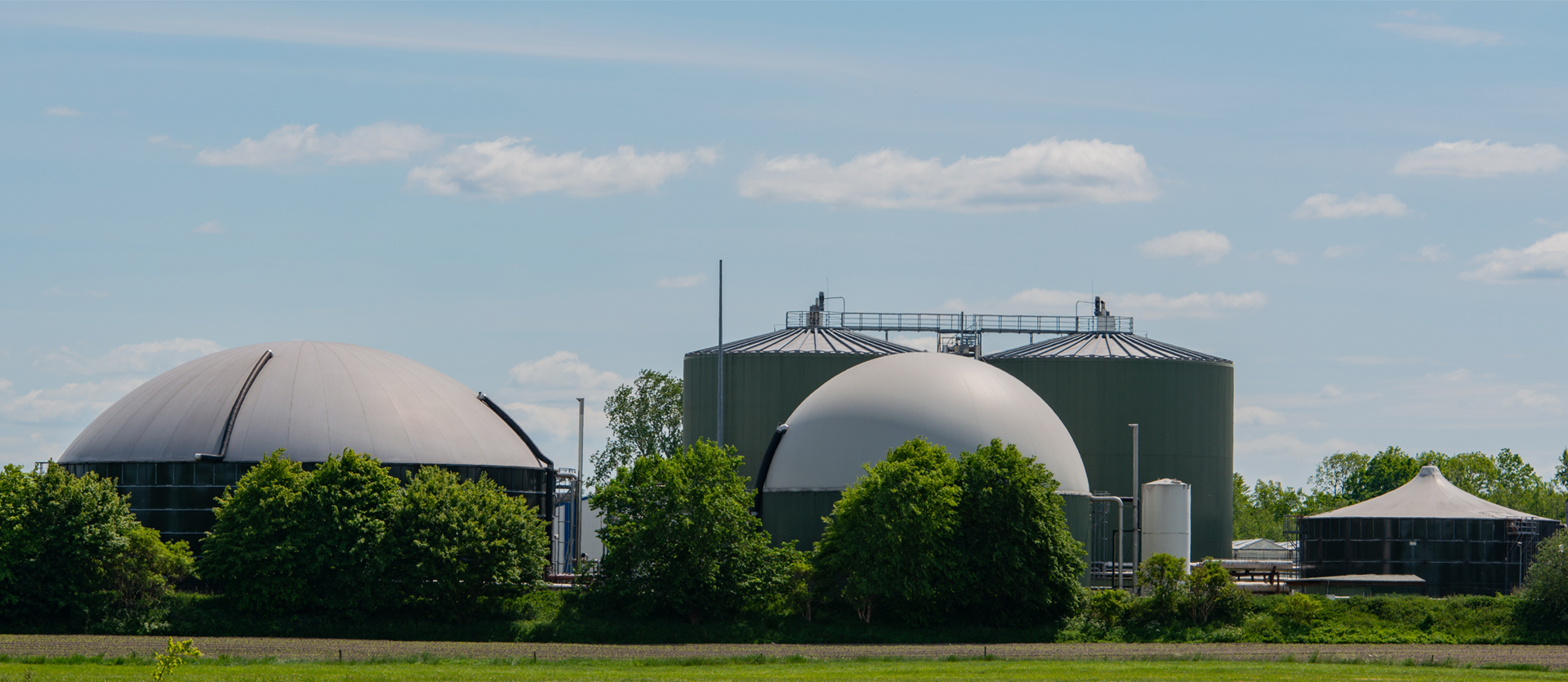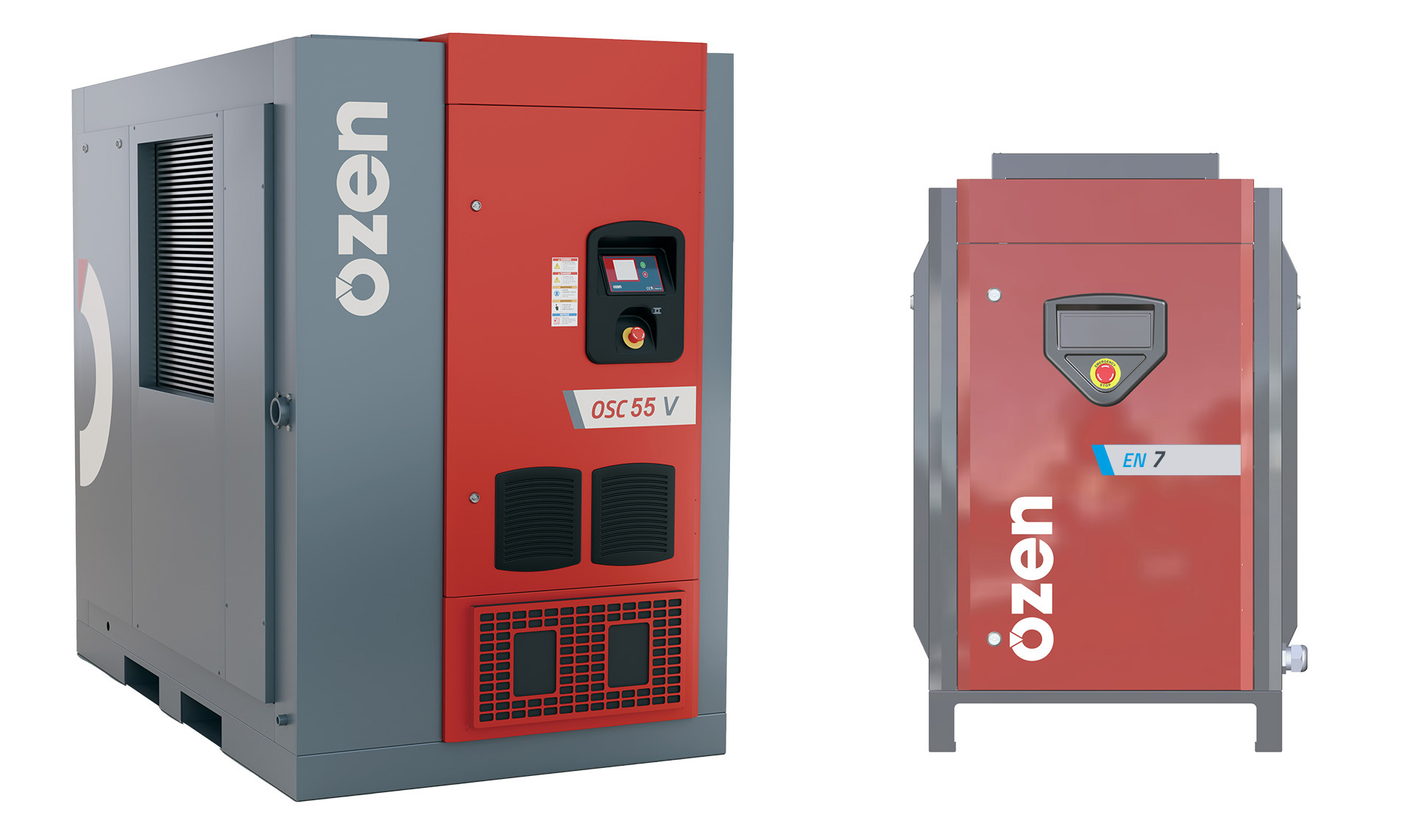Benefits of Using an Air Compressor in Biogas Production
10 December 2024, Tuesday

Efficiency and productivity are paramount in the field of biogas production. In this context, a tool like an air compressor can significantly enhance these elements. An air compressor is a versatile device that utilizes compressed air to operate various pneumatic systems in biogas facilities. It plays a critical role in the production process and offers numerous advantages.
First, an air compressor ensures the regular supply of compressed air, which is essential for the operation of equipment such as biogas generators, pumps, and valves. By maintaining a constant air flow, it helps sustain optimal performance and reliability. Another benefit of using an air compressor is its ability to enhance safety in biogas production. By reducing the need for manual labor, it minimizes the risk of injuries and accidents. Additionally, it provides precise control over various aspects of the production process, reducing the likelihood of system failures.
Overall, incorporating an air compressor into biogas production can lead to significant improvements in efficiency, productivity, and safety. Every biogas facility should consider this valuable tool for optimal operations.
The Role of Air Compressors in Biogas Production
Biogas is produced through the anaerobic digestion of organic materials such as agricultural waste, sewage sludge, and municipal solid waste. This process requires careful control and monitoring of various parameters, including pressure, temperature, and gas flow.
Air compressors play a vital role in biogas production by providing the compressed air needed to operate various pneumatic systems and equipment within the facility. These systems include gas pumps, valves, and control mechanisms that regulate biogas flow and pressure. Without a reliable and efficient air compressor, the biogas production process can face significant disruptions, leading to reduced output and potential system failures.
The use of air compressors ensures the maintenance of necessary air pressure throughout the various stages of biogas production. This is particularly important for the anaerobic digestion process, where microbial activity responsible for biogas production is highly sensitive to pressure variations. By ensuring a continuous air supply, air compressors help create an optimal environment for microorganisms to thrive, resulting in increased biogas yield and improved overall efficiency.
Biogas produced through anaerobic digestion contains impurities such as carbon dioxide, hydrogen sulfide, and water vapor, which need to be removed to meet the required standards for fuel use or injection into natural gas grids. Air compressors are used alongside other biogas processing technologies, such as scrubbers and dryers, to ensure the biogas meets quality standards.
Enhancing Efficiency in Biogas Production
One of the most significant advantages of using an air compressor in biogas production is improved efficiency. The continuous and reliable compressed air provided by the air compressor allows for better control over various processes in the biogas plant. These include regulating gas flow, mixing substrates, and maintaining optimal pressure levels.
By optimizing these parameters, the biogas production process becomes more efficient, resulting in higher yields and reduced energy consumption. Air compressors ensure the anaerobic digestion process operates at peak performance, maximizing the conversion of organic materials into biogas. This contributes to cost savings for the biogas plant, as more biogases can be produced with the same input resources.

Improved Gas Quality with Air Compressor Use
As mentioned earlier, biogas produced through anaerobic digestion contains impurities that must be removed before use as fuel or injection into natural gas grids. By providing the required compressed air, air compressors operate various gas processing technologies, such as scrubbers and dehydrators, to eliminate unwanted components like carbon dioxide, hydrogen sulfide, and water vapor.
Cost Savings and Reduced Maintenance with Air Compressors
By optimizing the efficiency of the biogas production process, air compressors help reduce energy consumption and operating costs. The continuous and reliable operation of the air compressor also contributes to the overall lifespan and durability of the biogas plant’s equipment. With the necessary air pressure and flow supplied by the air compressor, the risk of system failures and degradation is minimized, resulting in reduced maintenance needs and downtime.
The ability of air compressors to automate various processes within the biogas facility also leads to a reduction in manual labor, further contributing to cost savings.
Environmental Benefits of Using Air Compressors in Biogas Production
Integrating air compressors into biogas production not only provides operational and economic benefits but also offers significant environmental advantages. As a renewable energy source, biogas is inherently eco-friendly, reducing reliance on fossil fuels and mitigating greenhouse gas emissions.
Using an air compressor in the biogas production process enhances the facility’s environmental sustainability. By improving the efficiency and productivity of the biogas plant, air compressors help maximize the use of available organic feedstocks, reducing waste and resource consumption. By eliminating pollutants such as carbon dioxide and hydrogen sulfide, air compressors ensure that biogas meets the necessary environmental standards for applications such as onsite energy generation or injection into natural gas grids.
